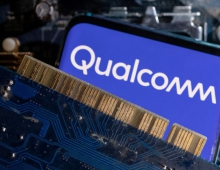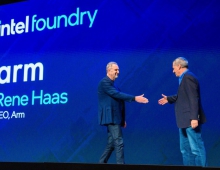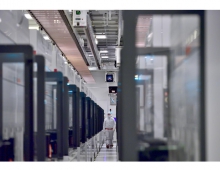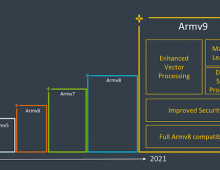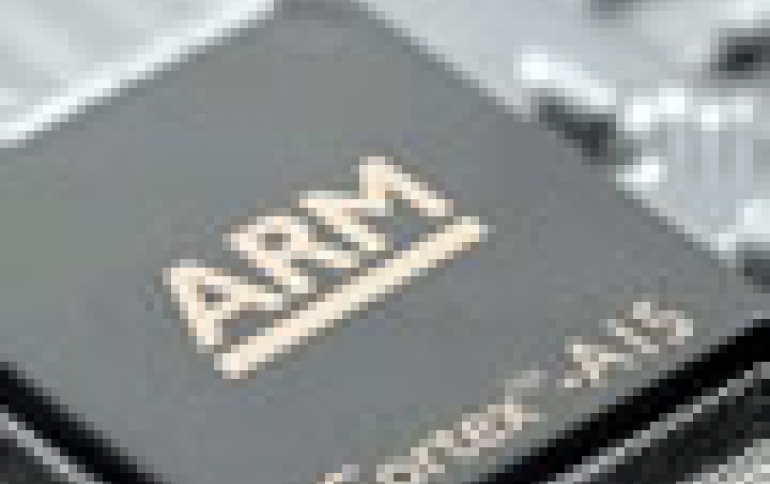
Royalties Help ARM Profits
ARM said on Tuesday its third-quarter pretax profit jumped 22
percent to 68.1 million pounds ($109 million) on revenue 20 percent
higher at 144.6 million pounds.
The profit was greater than forecasts and was helped by the adoption
of the company's processor technology found in ppopular smartphones
and tablet computers from Apple and Samsung.
"ARM has delivered another quarter of strong revenue and earnings growth. As we move into an ever more connected world of mobile computing, cloud-based networks and the Internet-of-Things, ARM is seeing increased demand for its high performance and low power technology. This demand is helping to drive ARM's licensing revenues and this quarter we saw market leaders license ARM's advanced processor technology for next generation super smartphones, tablets, and mobile and embedded computing applications," said Warren East, ARM Chief Executive Officer.
Sales of ARM's more expensive Cortex-A designs were particularly strong, according to ARM. Cortex-A accounted for nine percent of shipments, up from five percent a year ago, but it accounted for 35 percent of royalties, the company said. Licensing demand for Cortex technology was also strong, with sevens Cortex-A licenses signed in the quarter, helping total licensing revenue rise 15 percent, the company said.
"ARM has delivered another quarter of strong revenue and earnings growth. As we move into an ever more connected world of mobile computing, cloud-based networks and the Internet-of-Things, ARM is seeing increased demand for its high performance and low power technology. This demand is helping to drive ARM's licensing revenues and this quarter we saw market leaders license ARM's advanced processor technology for next generation super smartphones, tablets, and mobile and embedded computing applications," said Warren East, ARM Chief Executive Officer.
Sales of ARM's more expensive Cortex-A designs were particularly strong, according to ARM. Cortex-A accounted for nine percent of shipments, up from five percent a year ago, but it accounted for 35 percent of royalties, the company said. Licensing demand for Cortex technology was also strong, with sevens Cortex-A licenses signed in the quarter, helping total licensing revenue rise 15 percent, the company said.

